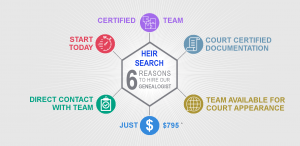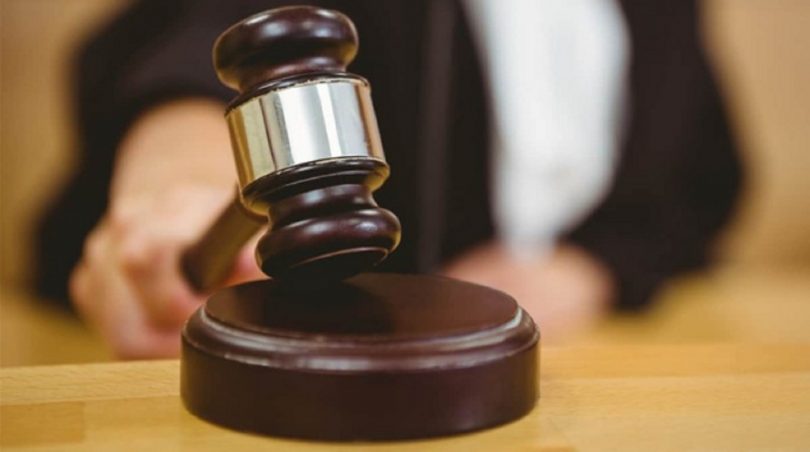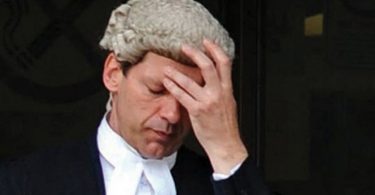Table of Contents
Over half a century after Jimi Hendrix’s death, his estate still suffers the probate process. It is a perfect example of the many prolonged estate settlement cases where probate lawyers’ talent, resilience, and professionalism are put to task.
Since the Hendrix estate case kicked off in the early 70s, probate disputes have continued to soar. Unsurprisingly, judgments and durations have differed depending on the complexities involved.
Nonetheless, complex cases like Jimi Hendrix or the $156 million Prince estate have uncovered insights that lawyers can use to navigate probate challenges.
Record Click sums this up with real-life stories from our experts to highlight key lessons for lawyers who want to expertly solve probate puzzles.
Hendrix Estate Case: Lessons for Probate Lawyers

The Hendrix case has become one of the most litigated and publicized
Jimi Hendrix’s estate cases started when he suddenly passed on in 1970 without a known wife, child, or Will. At the time of his death, Jimi had amassed a fortune through his successful music career. The entire estate moved to the parents since he had no offspring.
Jimi’s father, Al Hendrix, assumed the role of estate administrator until he died in 2002. To the surprise of many, Al allocated the entire $80 million estate to his adopted daughter Janie, leaving nothing for Jimi’s brother, Leon. Since then, there have been countless agreements and recurring court battles. The most recent one was referred to London-based courts.
As the battles continue, here are crucial takeaways for lawyers
- Encourage Estate Planning: It is regrettable when the family, probate court, and attorneys have to fight for reasons that a valid Will could have addressed. Therefore, lawyers should assist clients in creating and regularly updating their estate documents to ease the probate and distribution process.
- Become a Mediator: As a lawyer, you know the prospects of most cases even when the parties want to pursue their course. In this case, it would be wise to communicate the legal realities to your clients and other parties, highlighting the costs, uncertainties, and time wastage.Bring in neutral advisors to help the parties come to terms with the reality. Besides, guide the litigants on realistic and shared goals that lead to mutually acceptable solutions.
Prince Estate Case: Lessons To Solve Probate Puzzles

The Musician’s Estate Case attracted enormous media coverage
Prince Rogers Nelson passed on in 2016, leaving a vast legacy of music, royalty rights, intellectual property, unreleased recordings, and more in limbo. The renowned songwriter and multi-instrumentalist had accumulated substantial wealth since he started singing at 19.
Unfortunately, like Jimi Hendrix, Prince didn’t have a valid Will, meaning that the estate would have to undergo probate and the laws of intestacy. The closest surviving heirs to Prince’s estate were his six half-siblings, who battled in courts for six years to get a verdict.
What do we learn from the Prince Estate Case?
The Prince estate case exposed the flaws committed by lawyers and the interventions that helped solve probate puzzles.
-
Selecting Estate Administrator:
The prominent bone of contention in the initial phases of the Prince estate case was the selection of an executor. Mistrust among the half-siblings made it challenging to agree on the right person to serve as the estate administrator.
Lawyers should seize opportunities like these to educate clients on the administrator selection process, detailing their rights to remove an administrator for compelling reasons such as fraud. This way, it would be easier for parties to agree on an administrator and hold them into account.
-
Valuation of Intellectual Property:
Disagreements also emerged regarding the accurate valuation of the music catalog and the unreleased material that Prince had left behind. Lawyers waited until later to engage music rights and intellectual property specialists for accurate assessments.
Had they involved the expert valuers in the initial stages, there probably would be little to contend about among the heirs. Incorporating professionals in real estate, intellectual property and document analysis can greatly help solve probate puzzles.
-
Mediate and Manage Conflicts:
Inheritance cases involving several siblings can get messy, so lawyers must proactively prevent incidences. Luckily for Prince’s case, there wasn’t much physical drama, but the sibling-split into two factions betrayed lawyers’ presumed mediation efforts.
As a lawyer, the first step should be facilitating open communication and other potential dispute resolution mechanisms. Educate your client on the reality of the case and prospects to help save on time and reduce financial burdens. The lawyers would have saved much of the estate and time if they helped the siblings agree on an equal share as soon as the case was filed.
-
Advise on Monetization and Legal Vigilance:
Since Prince’s estate has interests in business ventures, lawyers should help clients explore opportunities to preserve and enhance value. In the same way, attorneys should help clients make necessary arrangements to create a Will or Trust to ensure history does not repeat itself.
How To Solve Probate Puzzles with Heir Search

Reasons you should consider seeking heir search assistance
Heir researchers and genealogists have also become a solid part of the probate process as they are, among other reasons, admissible in court and can present reliable evidence. Our experts at Record Click have been busy meeting the increasing demand. With their experience, they can dot the right path to a successful and easy probate process.
Disclaimer: Although accurate in scope, we have changed or omitted all identifying information, such as names, dates, and locations, in order to protect the privacy of individuals.
Record Click’s Veteran Heir Researcher Nancy Uncovers Unknown Biological Heir

A file image of a lawyer’s joy after overcoming a probate puzzle
A few months ago, a qualified probate attorney, Ann, leveraged the free consultation at Record Click to seek my counsel regarding a case she was handling.
The case involved an uncle (Robert) who had died without a spouse, children, or a Will. Mary, Robert’s niece, approached Ann after feeling obliged to raise concern over the over $20 million worth of estate.
The primary concern for the niece was that a charity organization had emerged to claim Robert’s estate and had a letter as proof of the transaction. Shocked by the discovery, Mary hired Ann to establish the authenticity of the charity organization and the best way forward.
Ann set objectives to determine the validity of the charity’s claim while searching for potential heirs to the estate to build on her case. After she signed up for services, I researched Robert and his lineage. Ann believed that Robert’s relatives, friends, unknown spouses, or children could greatly help cast doubt on the letter’s validity.
Luckily, we had Mary as a niece and a valuable informant per se. Within 10 days, I discovered about a hundred Robert relatives and close friends. Moreover, I discovered a 25-year-old daughter named Abby, born out of wedlock when Robert was a teenager. Her mother had died several years ago.
RELATED:
Genealogy Research: How To Strengthen Bond With Your Relatives
When I contacted Abby, she hesitated to speak, thinking I was a scammer fetching personal information or money. However, she was overwhelmed when I supplied her with copies of my credentials, Robert’s documents, DNA test results, and descriptions.
Abby was convinced to tell her story, indicating that her mother had left her a letter with crucial details about herself, including her biological father’s name and picture. Although she never got to see her father, she knew his young face and the name Robert.
When I handed the case back to Ann, it seemed Mary was unhappy with the discovery as she felt threatened and likely to lose his uncle’s fortune. However, Ann intervened with effective mediation and negotiation to see them win the case.
Fast forward, the charity organization struggled to withstand Ann’s strong defense given that someone was said to have helped Robert write the letter in his final days. Besides, the said letter had no no witness, executor, or notarization. These circumstances raised suspicions of influence or duress.
On the other hand, Ann had gathered sufficient forensic analyses, DNA results, and witnesses to support her case. After Abby’s testimony, the jury was convinced that the estate should go to the family, not charity.
The case looks easy, but you’re sure I omitted a boatload of hurdles we encountered. Some of the most critical lessons for lawyers in this case are to leverage DNA testing, master negotiation skills, and involve an heir searcher at early stages.
- DNA Testing: DNA testing was a game-changer as it proved the biological relation between the decedent and Abby. Besides, the results conformed to the comprehensive genealogy report I presented. In our review of the best DNA test, we recommended using FTDNA for Y-DNA and mtDNA testing as one way to solve probate puzzles.
Proven heirs are entitled to inherit too
- Mediate: Lawyers can quickly lose cases by letting parties disagree and pursue unrealistic goals. Mary wanted to drop the entire case, thinking Abby was a gold-digger. However, the attorney was categorical in her explanation that bringing Abby provided the best chance to win the case.
- Incorporate Heir Search to Solve Probate Puzzles: The timely discovery of a biological daughter was a lifeline for the attorney and the niece as it insulated them from potential future litigation. The comprehensive genealogy report also expedited the process and ensured fair estate distribution according to intestacy laws.
Professional Genealogist Megan Reinstates a Disinherited Heir

Being fraudulently disinherited from the estate can be stressful
When Peter, a probate attorney, contacted Record Click, he needed help with a case where a son, Carlos, was disinherited through a Will. Carlos’ mother had separated from his father, Donaldson, who later married Susan. Now Carlos believed his disinheritance from Donaldson’s estate was a manipulation by his stepmother and not a reflection of his dad’s true intentions.
Peter faced a powerful law firm that Susan had hired to defend the Will, and it was up to him to prove the Will was fraudulent. He contacted Record Click to establish the kinship between the involved parties and other individuals of concern.
My primary assignment from Peter was to document Donaldson’s lineage and close friends who would testify about his intentions. Some individuals I traced included Donaldson’s brother, Tom, who hinted at the existence of a previous Will. I also discovered Linda, Carlos’ mother; and Dave, Donaldson’s first cousin and close friend.
RELATED:
Contesting A Will: How To Win A Fair Estate Settlement
Dave, also a lawyer, was the custodian of the original Will that had him as the appointed estate executor. He was dismayed by Susan’s plot and refuted any claims of Donaldson having another Will. Luckily, the three agreed to testify and provide substantial evidence that reflected Donaldson’s true intentions.
In the end, Peter convinced the jury that Donaldson planned to leave his inheritance to his only son, Carlos. While reinstating Carlos’ heirship, the jury also cast doubt on Susan’s motives and character, terming them pure fraud.
- Work With a Team of Genealogists, Investigators, And Researchers: While searching heirs is paramount, you also want an investigator who can study the decedent’s immediate lifestyle and associates. The findings can help predict possible outcomes of your case and leverage information from the identified leads.
Incorporating professional can help solve probate puzzles
- Incorporate Forensic Expertise: Peter’s incorporation of certified forensic analysts and handwriting experts helped convince the jury that there was forgery in making the latest Will. It would have been challenging, if not impossible, to notice the forgery were it not for the veteran document analysts.
Overcome Probate Puzzles
The real-life examples could go on, but the probate challenges differ with each case. The last thing you’d want is a case with conflicts and unmanageable participants. Therefore, reviewing other cases lets you learn from the mistakes of others.
Nonetheless, loopholes can be inconspicuous despite reviewing prominent cases. Therefore, you’d still need to consult probate experts at Record Click.
Our team comprises professional genealogists who work with lawyers, administrators, executors, trustees, and bank and trust officers. These professionals will help you complete heir search, estate settlement, probate research, lineages, and other heir search services.
We offer no-cost, no-obligation consultations, even if you are not planning to start a search right away. Feel free to reach out with any questions — we look forward to connecting.
Contact us today or schedule a call.









